As in past years, Lydia’s Flexitarian Kitchen is participating in the annual Lenten Carbon Fast. This year’s theme is food waste. Find the other posts here: 2015 2014 2013
A few weeks ago we began a discussion about food waste and its associated costs. This week we’re going to explore how reducing wheat and meat consumption plus buying locally grown food helps to reduce water and fuel consumption.
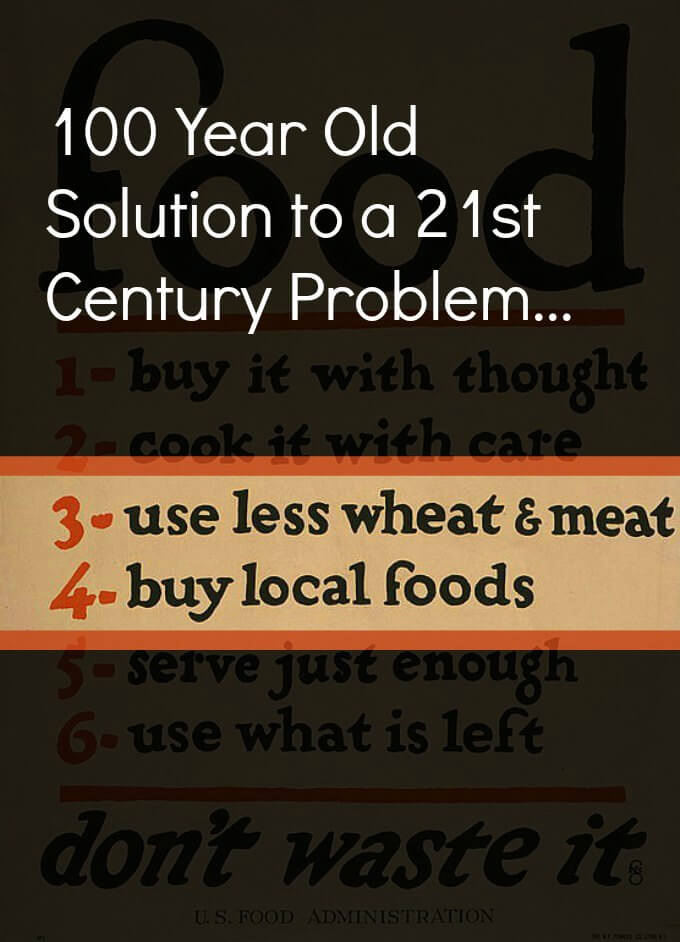
Did you know that during the First World War families in the US regularly practiced Meatless Mondays and Wheatless Wednesdays? They did it in order to help set food aside for troops fighting overseas as well as to provide food for millions starving in war torn Europe. Incredibly, this was accomplished voluntarily!
In addition to participating in Meatless Mondays and Wheatless Wednesdays to support the war effort, Americans were also encouraged to grow a garden, keep a backyard flock of chickens, buy from local suppliers and to limit unnecessary trips.
Thanks to modern agricultural methods more than adequate amounts of food are produced worldwide although distribution obviously needs improvement. Why then, is there a growing movement to return to the practices of a century ago? The answer lies in resources.
It takes a mind boggling amount of water and fuel to produce, process and distribute food. If you have a garden or if you’ve ever made a batch of jam or frozen peas you have an inkling of the copious amounts of water needed: imagine that multiplied to many thousands of times. Check out the graphic below for estimated water usage to produce common meat and wheat products. Keep in mind these values cover the entire production cycle and would include feed and water for animals as well as fuel used. See the bottom of the post for the sources and further reading.
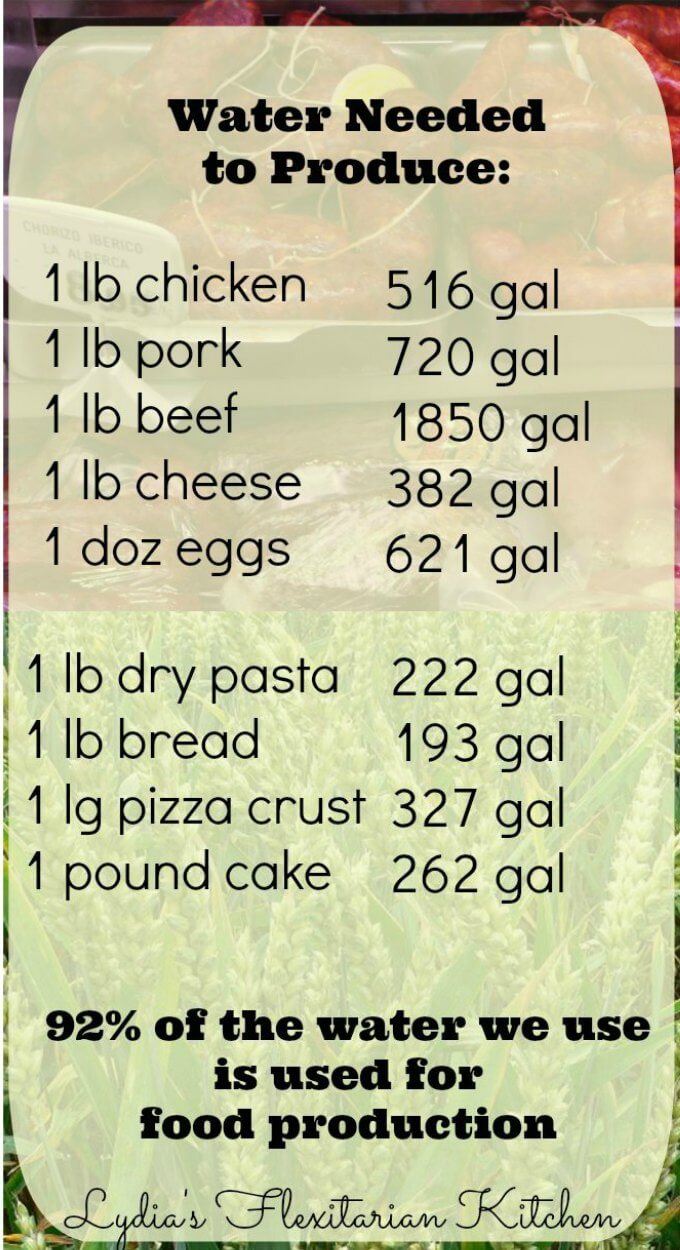
I’m amazed at these figures and after this post about the impact of reducing portion size I really shouldn’t be surprised but I am. Right off the bat, you can see the benefit of reducing meat by participating in a program like Meatless Mondays. While wheat and other cereal grains require less water, they are frequently presented to us in heavily processed forms which are less nutritious. Highly processed food also requires preservatives and stabilizers to ensure long shelf life and are often enhanced with artificial flavors. Limiting the consumption of wheat and other grains to the least processed choices will reduce your overall caloric intake plus save the resources needed for producing what’s commonly called “junk food”.
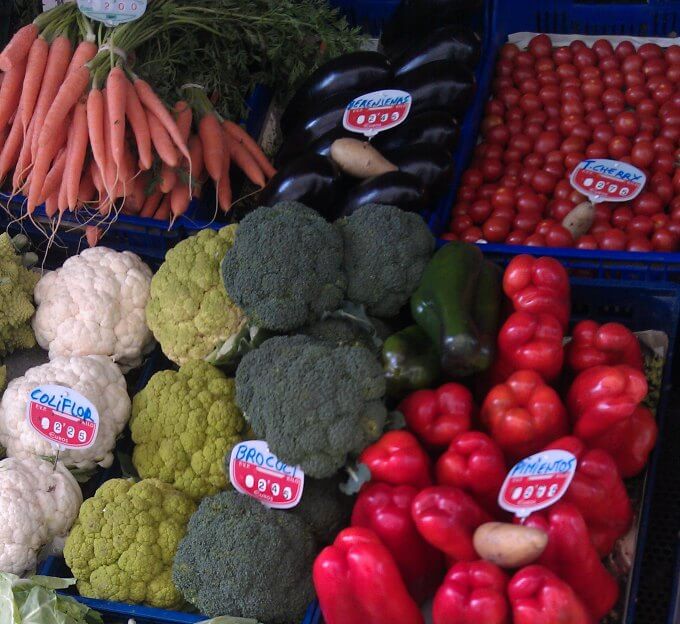
Buying food from local producers whenever possible has a similar impact to reducing overall consumption. Obviously there will be less fuel needed to transport. Spreading production over a wider area reduces the risk of concentrated production in a particular area. You’ll find plenty of farmers who follow best practices for raising meat animals and organic products. Many growers use heirloom seeds and varieties that are preferred by consumers in the region. This helps protect genetic diversity. Additionally money spent with locally owned businesses tends to stay in the community via wages and taxes paid and services bought.
During the First World War people cut back on meat, wheat and fuel in order to meet the needs of the troops and to feed people who were unable to plant crops because of the war. Nowadays with drought a persistent concern and a distribution system vulnerable to fluctuating fuel costs, it makes sense to follow the same practices in order to conserve water and fuel.
Sources:
For the graphic
Angela Morelli’s awesome presentation on virtual water
Water Facts from the Oldham County Water District
Study by the The Guardian on Water Usage and Waste
Photo credit for the wheat photo “Wheat P1210892” by Copyright © 2007 David Monniaux – Own work. Licensed under CC BY-SA 3.0 via Wikimedia Commons. (Meat photo was taken by me in Madrid 2012)
About the Original Meatless Monday and Wheatless Wednesdays:
Foods that Will Win the War and How to Cook Them 1918 (scanned by Project Gutenberg)
Home Economists in World War I
Buy Local Movement:
Why Buy Local | Sustainable Connections
Impact of Buying Local Produce | Foodtank
Other:
Impact of Cereal Production on Local Wildlife (interesting point)

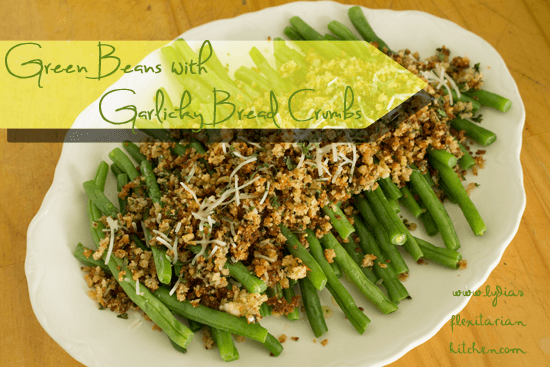

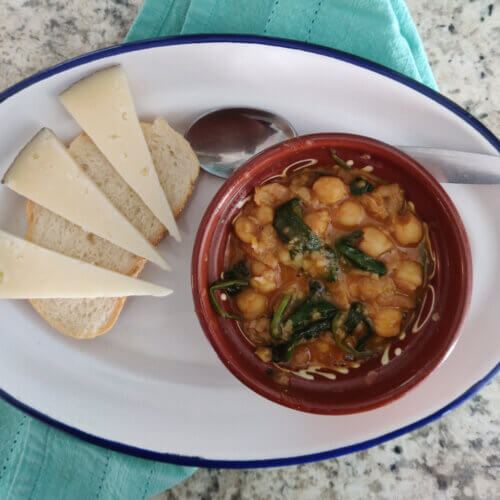
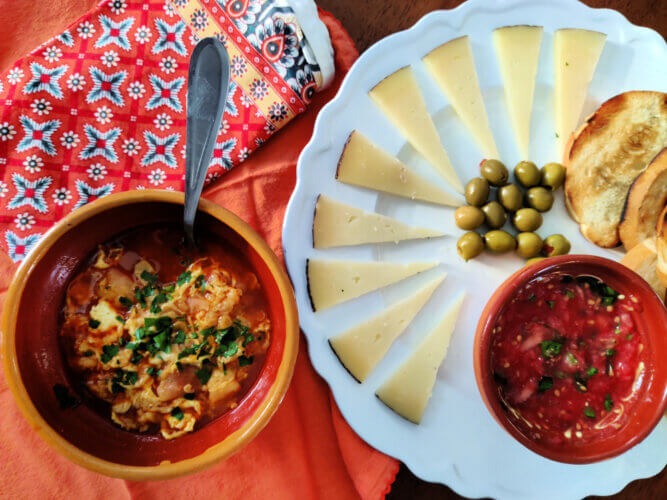


Very interesting article! It contains a lot of useful information about reducing food waste. I am trying to buy just the most important food for home and to eat everything. In this way I am sure that my food is not gonna turn into waste!
That’s a good plan, Eva and that’s what I do. I still throw some away, but nowhere near what I used to do 🙂